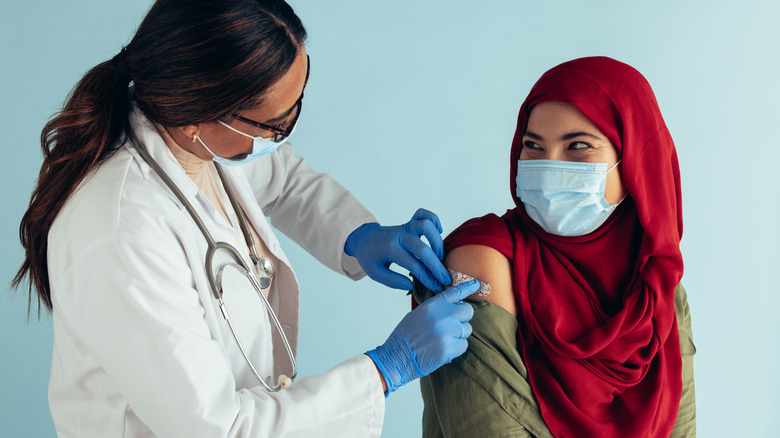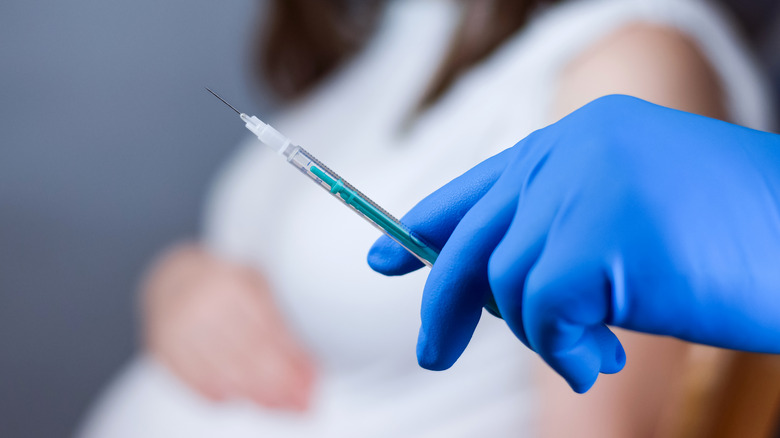Why Some Think Women Might Need A Lower Dose Of The COVID-19 Vaccine
In the mad rush to get the COVID-19 vaccines to market at the start of 2021, pharmaceutical companies didn't have the luxury of investing time and money in years of clinical trials. Now that widespread vaccinations are well underway, those firms and their researchers now have more data available. When it comes to side effects, the data reveals that women, especially younger ones, make up 80% of reported side effects related to the COVID-19 vaccine (via Next Avenue).
The good news is that women's bodies tend to be better equipped to fight off infection, including COVID-19 once infected. This could potentially impact how we continue to go about vaccinating the female population. It's possible that women could start receiving smaller doses of the vaccine and potentially experience fewer side effects as a result. Because the vaccine may have an impact on hormones, this could have repercussions beyond just avoiding the flu-like symptoms that many people experience.
Women report the vaccine having an effect on their menstrual cycle
By administering a lower dose, women may be less likely to see an impact on their menstrual cycles, another side effect that has been reported amongst women (via BBC News). As of this time, there have been no studies nor indications that these issues would be long-lasting (via GoodRx).
Two recent studies showed that mRNA vaccines are safe for pregnant women, and that the antibodies do get passed on to the baby (via National Institutes of Health). Additionally, there has been no link found between the COVID-19 vaccine and miscarriages. Considering that pregnant women are more likely to experience more serious side effects in the event that they contract COVID-19, that's all the more reason to consider getting vaccinated.
The more data collected, the better researchers can learn how the vaccines are affecting different populations. Therefore, it's important to report even the most minor of issues you experience. The Vaccine Adverse Event Reporting System (VAERS) allows for self-reporting, only takes minutes, and your privacy is protected. Beyond that, your data could help compensate for the fact that women are still excluded from too many biomedical research studies (via STAT).


